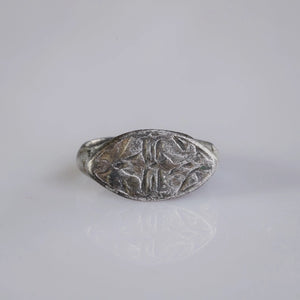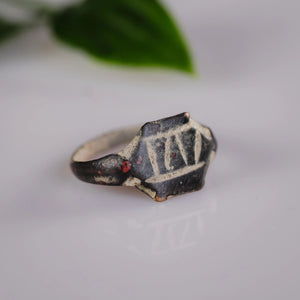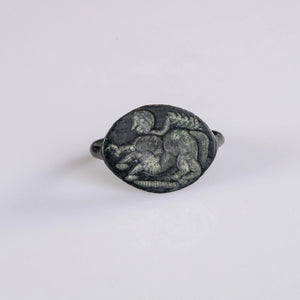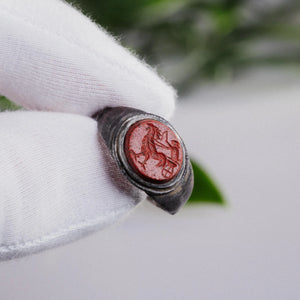Interesting facts
Do Knights Still Exist? Exploring Modern Chivalry
Do knights still exist? For many, the word "knight" instantly conjures images of shining armor, galloping steeds, and heroic battles fought in medieval times. Tales from history and legend paint knights as valiant warriors bound by chivalric codes, defenders of kingdoms, and champions of justice. But if we fast-forward to the present day, what has become of these once-mighty fighters? Are knights now relics of a bygone era, or do they persist in some form?
The Birth of a Knight: A Warrior’s Role in Medieval Society
In medieval Europe, the emergence of the knight was closely tied to the development of feudal systems and the warfare that dominated the era. Knights were more than mere soldiers; they were also expected to embody the ideals of chivalry—a complex set of behaviors that combined martial valor with generosity, loyalty, honor, and service to both their lord and the Church.
Evolution and Decline: From Warrior to Symbol
As centuries passed, the nature of warfare changed, rendering the knight's battlefield role obsolete. Across European courts, knighthood transitioned into a societal badge of honor, awarded for loyalty and service rather than combat.
The Modern Knight: Honor without a Sword
Today's knights are recognized for their contributions across diverse fields, emphasizing civic responsibility, innovation, and leadership. The British honours system meticulously assesses nominees, celebrating achievements that advance human knowledge and society. One can explore unique medieval artifacts, such as the Bethlehem Crusader Silver Ring, which add a touch of historical elegance to our contemporary understanding of knights.

The symbolic touch of a sword during investiture evokes a lineage of service and integrity, inspiring recipients to tackle contemporary challenges with valor akin to their predecessors on medieval battlefields.
The British Honours System: A Closer Look
The UK's honours system, with its orders like the Order of the British Empire and the Order of the Bath, stands as the most recognized framework for knighthoods. Each order focuses on different contributions, ensuring that a broad spectrum of human endeavor is acknowledged.
Notable Knights of 2023: Illustrating the Title’s Modern Meaning
The 2023 honors list features individuals from various backgrounds, including artists, scientists, and humanitarian leaders. Their work reflects a modern interpretation of valor, underscoring dedication to culture, knowledge, and humanitarian causes.
Consider, for instance, the inclusion of a social entrepreneur whose educational programs for disadvantaged youth led to his knighthood—a testament to collective impact rather than personal glory.
A Title with Layers: What Knighthood Symbolizes Today
Knights today bear the title with both pride and responsibility. It is a commitment to serve as role models and custodians of integrity and dedication, linking recipients to a noble tradition.
This resonates globally, as similar systems exist in other cultures, like Spain's Order of Isabella the Catholic and Japan's Order of the Rising Sun, each celebrating service and achievement.
Personal Reflections: Why Do We Still Value Knights?
Even in an era of skepticism toward hierarchy, society values knighthood for its celebration of excellence and inspiration. The title symbolizes enduring values, promoting stories of dedication and perseverance.
Beyond Britain: Knighthood in Other Cultures Today
Knighthood remains globally resonant, as countries like Spain and Sweden maintain chivalric orders to honor service and achievements. These systems verify knighthood as a vessel for marking exceptional service and inspiring societal contributions.
The Future of Knighthood: Tradition Meets Modernity
Knighthood will likely continue evolving, with recent recognitions emphasizing new priorities, like environmental or digital innovation, aligning with contemporary global needs. This path reflects a beautiful convergence of past honor and modern influence.
Its adaptability allows young generations to relate deeply, remain motivated by common good while embracing modern needs.
A Knight Today: How Does One Become a Knight?
Today's path to knighthood involves substantial accomplishments and public acknowledgment. Nominations, often scrutinized, lead to investiture, awarding a prestigious societal position emblematic of one's dedication.
The Emotional Resonance of a Knight’s Title
For honorees, receiving a knighthood signifies a journey marked by perseverance and dedication, bridging personal achievement and societal acknowledgment.
Titles like knighthood create human connections, honoring sacrifice, commitment, and the desire to make a difference.
Why are knights still revered in modern culture?
Knights symbolize timeless virtues, challenging people to impart integrity and courage in all life facets, much like their historical counterparts did, albeit with fewer dragons.
One may wonder, "Why are knights still revered in modern culture?" Knights symbolize timeless virtues, challenging people to impart integrity and courage in all life facets, much like their historical counterparts did, albeit with fewer dragons.
Conclusion: Do Knights Still Exist? Indeed, but in Spirit as Much as Title
Knights today exist as honorary figures emblematic of integrity, compassion, and societal contribution, battling in studios, labs, and communities rather than on war fields.
The enduring nature and evolving scope of knighthood showcase adaptable historical symbols capable of inspiring across generations.
Connecting Past to Present with Historical Artifacts
Embrace a Piece of History
Shop NowThis expanded exploration reveals how knighthood continues to resonate deeply, bridging ancient ideals and modern achievements. Its legacy reminds us that while times change, the human spirit’s pursuit of honor, service, and excellence remains constant—and that truly, knights do still exist.
What is a modern knight?
A modern knight is an individual recognized for significant contributions to society in various fields such as arts, sciences, or philanthropy, rather than military feats.
How does one become a knight today?
Today, individuals become knights through distinguished public service or contributions in their field, assessed by honors committees and bestowed during ceremonial investitures.
Can I own a piece of knightly history?
Yes, you can explore genuine historical artifacts like the 'Bethlehem' Medieval Crusader Silver Ring, connecting you to the past.




